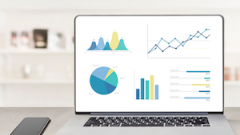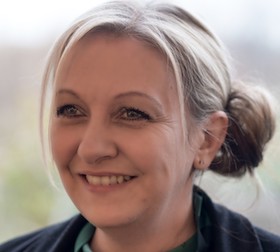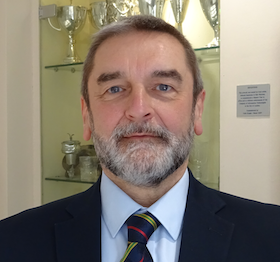 Most, if not all company leaders have opened their minds to diversity and inclusion as both a moral and business imperative, and are not shy about beating the D&I drum. But for those neuro divergent people who remain systematically marginalised, the drumbeat signals no more than one form of difference being prioritised over another. Such dissonance is symptomatic of people who think differently being judged differently when, in fact, their neurodiversity marks them out as being extremely capable and beneficial to organisations, especially in the tech sector. In last month’s Comms Dealer Channel Forecast session, Julie Mills, CEO and founder, Support to Win, and Steve Smith, CTO and founder, Astro Technology Group, called on the comms sector to embrace neurodiversity and provide a safe haven for neurodiverse people – while harnessing their unique skills for a competitive edge.
Most, if not all company leaders have opened their minds to diversity and inclusion as both a moral and business imperative, and are not shy about beating the D&I drum. But for those neuro divergent people who remain systematically marginalised, the drumbeat signals no more than one form of difference being prioritised over another. Such dissonance is symptomatic of people who think differently being judged differently when, in fact, their neurodiversity marks them out as being extremely capable and beneficial to organisations, especially in the tech sector. In last month’s Comms Dealer Channel Forecast session, Julie Mills, CEO and founder, Support to Win, and Steve Smith, CTO and founder, Astro Technology Group, called on the comms sector to embrace neurodiversity and provide a safe haven for neurodiverse people – while harnessing their unique skills for a competitive edge.
We had a relatively new person in the business break down and say, ‘I’ve never been able to come out before and say I have autism’. That is very sad
 In 2021 The Office for National Statistics (ONS) released data that showed just 22 per cent of autistic adults are in any form of employment. “If we are going to get serious about diversity and inclusion we have to get serious about neurodiversity,” stated Mills (pictured left). “It is appalling that so few neurodiverse people are in employment. This is a big talent pool that businesses, especially in the tech industry, are missing out on. We need to work on amplifying this message.”
In 2021 The Office for National Statistics (ONS) released data that showed just 22 per cent of autistic adults are in any form of employment. “If we are going to get serious about diversity and inclusion we have to get serious about neurodiversity,” stated Mills (pictured left). “It is appalling that so few neurodiverse people are in employment. This is a big talent pool that businesses, especially in the tech industry, are missing out on. We need to work on amplifying this message.”
 According to Smith (pictured left), organisations need a multitude of different thinking skills, whether to gain a helicopter view, business foresight, speculation or applied to particular functions. “And in our industry, right down to the binary, that requires different mindsets,” he stated. “Diversity of thinking is essential for business success, and neuro divergent people are often very good at specific areas. I’m autistic and much happier working in binary than I am in English. When trouble shooting I’m completely focused on that job. There’s nothing wrong. It’s just the way I’m made up. However, it is wrong to stereotype and think autistic people behave in a certain way. And it’s wrong to say they don’t have any value because of their neurodiversity. Neuro diverse people can provide a business with a competitive advantage. They are an asset to any organisation.”
According to Smith (pictured left), organisations need a multitude of different thinking skills, whether to gain a helicopter view, business foresight, speculation or applied to particular functions. “And in our industry, right down to the binary, that requires different mindsets,” he stated. “Diversity of thinking is essential for business success, and neuro divergent people are often very good at specific areas. I’m autistic and much happier working in binary than I am in English. When trouble shooting I’m completely focused on that job. There’s nothing wrong. It’s just the way I’m made up. However, it is wrong to stereotype and think autistic people behave in a certain way. And it’s wrong to say they don’t have any value because of their neurodiversity. Neuro diverse people can provide a business with a competitive advantage. They are an asset to any organisation.”
Business leaders, in the main, are seeking to develop environments where people with differences are routinely included, but all too often these efforts do not take into account people with non-visible differences including autism. “Company leaders are proud of adhering to the Equality Act, but ultimately where is the neurodiversity piece in that?,” asked Mills. “There is no employment law to say that neuro diverse people can speak out about their challenges or diagnosis and still get the same opportunity. It’s not a legal requirement. If we fail to recruit neuro divergent people we’re potentially missing out on employing the next Elon Musk or Bill Gates.
If neurodiversity inclusion is not recognised and celebrated like any other human difference in the D&I spectrum, it devalues every inclusive declaration made by a business
“Removing the stigma and putting in support frameworks for these exceptional minds gives people a safe place to say ‘I am neurodiverse’, and that starts with top level management. Yet most business leaders don’t know what can be achieved in their company by people with neuro diverse minds. It’s not difficult to embrace – but not talking about this is one of the biggest problems.”
Smith noted that the neuro diverse talent pool has not gone unnoticed by the Army which has wised up to the advantages of recruiting such unique candidates. “I’ve spoken to people in other areas of the military where autistic people are being recruited in specific types of jobs because of their focus,” he explained. “It’s important to keep an open mind and be as supportive as possible to give people an opportunity. Preconceived ideas about neurodiversity don’t help. Every neuro divergent person is an individual and like any other person has individual needs. A specialist in this area once said to me, ‘people have impairments and differences, it’s other people that make it a disability’. That has stayed with me.”
Smith is autistic himself, and in recent years has learned more about communication and eye contact having spent his working life being happy in a comms cupboard working with technology, shut away from people. “I dropped out of school at 13 and on paper my qualifications are non-existent,” he stated. “I scraped into an apprenticeship and after 12 years in the industry co-founded Astro. I’ve only got through two interviews in my life, it’s a stressful situation. So as part of our recruitment strategy we hold trial days. During our apprentice selection process we try to understand the person. This is a more friendly way of recruiting and better than a make or break interview.”
It’s not an over statement to say that neuro diverse people can provide a business with a competitive advantage. They are an asset to any organisation
Smith explained that when he dropped out of school at 13, that didn’t mean he stopped learning. “I read books on nuclear physics and electronics at a much deeper level than at school,” he stated. “I was repairing guitars at 14 and wiring my own electronic circuits, fixing things around the house – none of this comes up on a CV. The moral approach is to be inclusive and give everyone a chance, but businesses generally take the path of least resistance and are missing out as a result.”
Overcoming stigma
But talent acquisition strategies generally do not include a neurodiversity component, and Mills observed that when people display odd behaviours during an interview they are potentially not going to be successful in that application. “People have preconceived ideas about autism with the stigma suggesting that neuro diverse people won’t be able to cope within working environments,” she added.
“Having brought up a neurological divergent child into being a wonderful adult, I’ve seen the struggles and capabilities of what I call exceptional minds. My son has Aspergers, is an amazing developer and was employed because of his Aspergers. This can be a scary subject for many businesses. But in reality, when including neurodiversity as part of a programme you come to see it’s not difficult to make changes that ultimately help businesses go to the next level.”
Mills also noted that the processes businesses need to adopt begin with communication. “If we look at how we are going to implement a programme to get the best out of our neuro diverse people then let’s communicate with them in a way that fits with their thinking,” she explained. “You only have to make small changes to make a difference. When we looked at our own business it became obvious that we had people who were either diagnosed or ‘disclosed’. Likewise, they may already be in your workforce. Are you getting the most out of them? Are they struggling? Have they lived their entire life masking their neurodiversity? We had a relatively new person in the business break down and say, ‘I’ve never been able to come out before and say I have autism’. That is very sad.”
If we fail to recruit neuro divergent people we’re potentially missing out on employing the next Elon Musk or Bill Gates
Smith pointed out that up to 20 per cent of the UK population is diagnosed as neuro divergent, so the chances are that many businesses will have unwittingly tapped into this talent pool already. “There’s also a large number of undiagnosed people, or people who have been diagnosed and don’t want to share that information,” he added. “Because of the stigma attached to autism they are afraid they might be labelled in a way that impacts their career. Many neuro divergent people mask their condition and put on an act. We’re missing out on their talent as we are not getting the true person.”
Mental health
According to Mills, undiagnosed neuro differences could, to some extent, underlie the mental health discussion which has high profile in the public domain. “People can now stand up and say, ‘I suffer with my mental health’, but we need to get more granular,” she said. “It is down to us to prevent our teams suffering with their mental health. We’ve been working on this for a long time and it can be easy to make progress. For example, my son benefitted when he was given a visual timetable at school. It changed the way he reacted to instruction. In the workplace, it could also be as simple as changing a communication piece. Furthermore, I believe it’s a moral obligation to embrace neurodiversity.”
If neurodiversity inclusion is not recognised and celebrated like any other human difference in the D&I spectrum it devalues every inclusive declaration made by a business. Equally, the language of D&I routinely points to enabling people of all kinds to be their ‘authentic selves’, but at the same time organisational thinking and culture may be geared towards neuro diverse people feeling that they need to hide their true selves. “We all agree that people are not the same but there is a standard preconception about what people should do and how they should behave,” observed Mills. “My absolute passion is to get the best out of people, and each individual should have their own path within a team. We’re currently going through neuro divergency accreditation, looking at our business, where the gaps are and how the organisation needs to be run to support neuro divergent people. This is building our confidence to move further forward.”
Raising awareness
Intertwining neurological differences into strategy and culture, and raising awareness among neurotypical colleagues, all boils down to business leaders being ‘people persons’, believes Smith. “They need to learn about the people in their organisation,” he stated. “And when recruiting, it’s useful to have some understanding of the different neuro divergent profiles. There’s plenty of information out there, and certain charities provide support to high functioning autistic people to help them get jobs. There’s lots of information and help available for business leaders to better understand the pool of talent they are missing out on – and not be afraid of it.
“That said, this issue is much bigger than the comms industry and something that needs to go further up the chain towards government. Perhaps we should be considering starting apprenticeships at a younger age. That would lend itself to the needs of neuro divergent people who currently sit out school for the full term when many clearly have talents that could be put to use now.”
Mills reiterated that the technology industry, by its nature, attracts neuro diverse people. And she underlined that there is an opportunity for businesses to gain a competitive advantage through giving people who think differently the right support to ‘do amazing things’. “Wouldn’t it be great if the comms sector had its own charter to drive home the message that this industry is right for neuro divergent people because the support is there,” stated Mills.
“But most of our sector is made up of sub-50 people organisations without HR functions, so it needs to be easy to make changes. And it needs to be more than a wear a T shirt day. Make it personal to you and embrace what is an absolute ability – not a disability. And don’t be afraid, it’s not difficult.”
More key points to consider...
Qualifications do not give you the full picture of a person. My son read The Guinness Book of Records before going to bed instead of bedtime stories as he wanted to educate himself. He learned programming through reading books, but there are no paper qualifications next to these progressions. The way that people are judged by their exam results – and not given the support they need – must change.
Julie Mills, CEO, Support to Win
The key to unlock the potential of neurodiversity is education and awareness about the main diagnostic labels, which always comes down to talking to the individual. Aiming to make neurodiversity as mainstream as possible would also be a great start. A friend of mine at The Worshipful Company of Information Technologists has just discovered that she’s autistic and is putting together a website with collective stories from neuro divergent people as a support tool for similar people – and employers as these career and life stories demonstrate talent.
Steve Smith, CTO, Astro Technology Group
Championing neurodiversity
In the first of a series of monthly insight comments neurodiversity champion Julie Mills, CEO, Support to Win, argues why it’s time to change perspectives on people with neuro diverse variations and make diversity truly inclusive – and more beneficial to businesses.
Around 15 to 20 per cent of the population are thought to be neuro divergent (ND for short). And with such a large group, you can’t afford to generalise. But the one thing they share in common is that their brains work differently. No less capable, no less valuable, no less imaginative, hard working, collaborative or intelligent. The problem is that workplaces and management processes tend to be rigidly neurotypical.
This puts constraints on what ND people can achieve, leading to performance issues, conflict and potentially even mental health crises. That’s not to say that ND people can’t cope with a typical work environment. Millions do. In fact, you may already employ an ND person and not know it. But the question I’m asked most about ND by channel pros is how a typical 10–100 employee company can find the time and resources to accommodate the needs of ND people. It’s the right question to ask. Another, more honest one is, ‘what’s in it for me?’. Be clear on this: It takes far less material investment than you think and the benefits are extraordinary.
